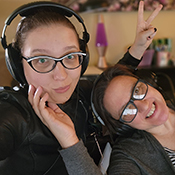 In recent years, clinicians evaluating and treating trans and gender-questioning youth have observed that the number of those presenting for treatment has multiplied several times over. The UK NHS’ Gender Identity Development Service has reported an increase in referrals from 94 cases in 2009-2010 to 969 cases in 2015-2016, although many of those evaluated will not go on to transition or receive medical transition treatment. Gender specialists with the NHS have attributed this significant rise in referrals to “increased awareness and acceptance of gender issues – particularly via the media and social networks”.
In recent years, clinicians evaluating and treating trans and gender-questioning youth have observed that the number of those presenting for treatment has multiplied several times over. The UK NHS’ Gender Identity Development Service has reported an increase in referrals from 94 cases in 2009-2010 to 969 cases in 2015-2016, although many of those evaluated will not go on to transition or receive medical transition treatment. Gender specialists with the NHS have attributed this significant rise in referrals to “increased awareness and acceptance of gender issues – particularly via the media and social networks”.
Dr. Bernadette Wren at the Tavistock and Portman has pointed out that the last two years have seen a slowing in the rate of increase: “There may have been an absolute peak of young people who had been sitting on this for quite a long time coming forward … It may be that there’s a really, really large reservoir of people who are only finally beginning to speak about this now.” Conversely, anti-trans advocacy groups like Stephanie Davies-Arai’s “Transgender Trend” have attributed this increase to “the media … promoting awareness and acceptance of transgender theory as uncontested truth” and to an unsubstantiated clinical entity termed “rapid onset gender dysphoria” – an etiology proposing that trans youth contract gender dysphoria due to “internet and peer-group influence”.
The claim that this increase in referrals is driven by a heretofore unknown form of gender dysphoria is highly questionable, particularly given the lack of any evidence delineating the proposed condition as a syndrome distinguishable from classical gender dysphoria. And a new report from an adult gender service in Oxfordshire calls into question the very idea that a unique “trend” must be taking place among trans adolescents (Fielding & Bass, 2018). ■



